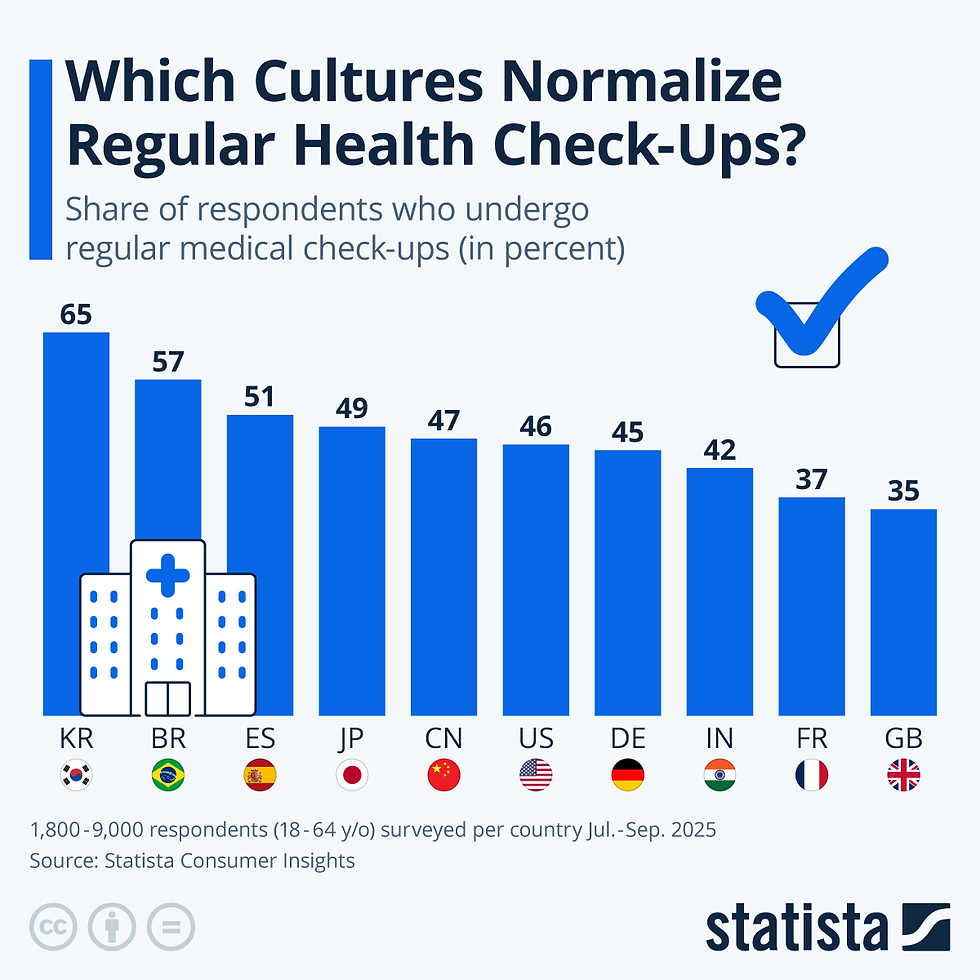Americans Are Skipping Doctor Visits Due to Costs
- raquelasg7
- Feb 14, 2024
- 2 min read
This article is published in collaboration with Statista
by Anna Fleck
Twenty-eight percent of U.S. adults were forced to skip or delay medical care in 2022 because they could not afford to pay for it, according to a survey by the Federal Reserve Board. This is an increase from the 24 percent in 2021 and the highest share of U.S. adults since before the Affordable Care Act, aka Obamacare, was introduced back in 2014.
Dental care was the most frequently missed form of healthcare, having been skipped due to costs by 21 percent of respondents in the prior 12 months to the survey. It was followed by seeing a doctor or specialist (16 percent), forgoing prescription medicine (10 percent), follow-up care (10 percent), mental health care or counseling (10 percent). Respondents could select multiple answers to this question.
According to the FRB, the increase in the share of people delaying or avoiding medical care is likely at least partly due to high inflation in the U.S., as patients tried to find ways to cut back on expenses. This matches up to the data in the report, which shows that those with a higher family income and more of a buffer zone were less likely to have skipped or delayed medical care. For those with a family income of less than $25,000, 38 percent of adults went without some form of medical care because of the costs, versus just 11 percent of adults making $100,000 or more.
Similarly, family income seems to correlate with reported levels of health. The FRB explains that for those with an income at $25,000 per year or less, 75 percent of respondents said they were in good health. For those earning $100,000 plus, the figure was 91 percent.
Other surveys tell the same tale. For example, Gallup researchers found that there had been a 12 percentage point increase in the share of Americans reporting that they or a family member had postponed medical treatment between 2022 and the year before, bringing the latest figure to 38 percent - the highest level since 2001. In this study, lower-income adults, younger adults and women in the U.S. were more likely than other respondents to say they or someone in their family have delayed care for a serious medical condition. Meanwhile, a 2023 survey by the Commonwealth Fund found that 46 percent of those with low or average incomes had skipped or delayed needed care because of the cost.
Start leaning Data Science and Business Intelligence tools:
createandlearn#analytics#dashboard#finance#accounting#tableau#powerbi#excel#sales#datascience#businessintelligence





























Comments